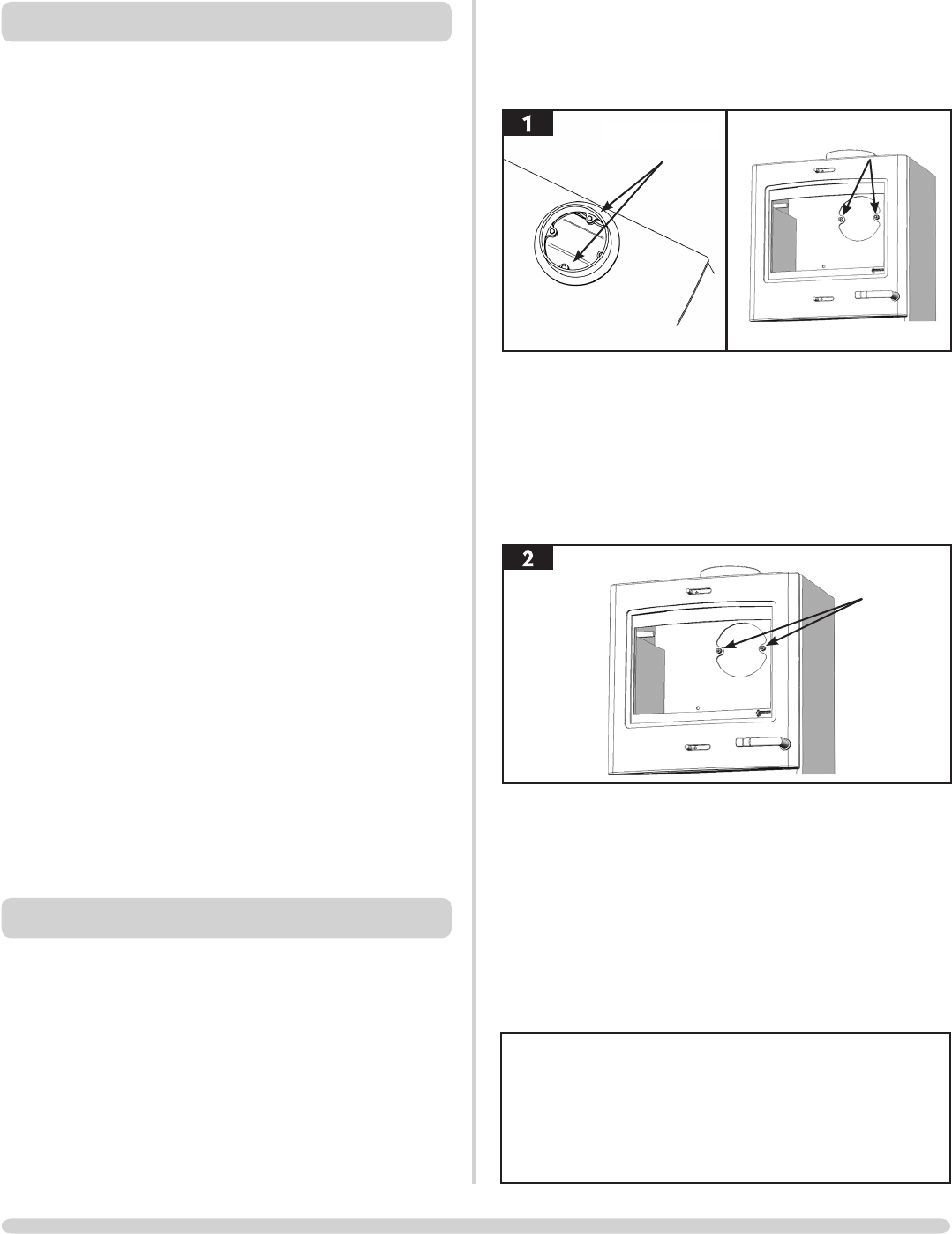
22
LEGAL REQUIREMENTS
Before installation and/or use of this appliance please
read these instructions carefully to ensure that all
requirements are fully understood.
The appliance must be fitted by a registered installer*,
or approved by your local building control officer.
It is very important to understand the requirements of the
national Building Regulations
†
and standards
‡
, along with
any local regulations and working practices that may apply.
Should any conflict occur between these instructions and
these regulations then the regulations must apply.
Your local Building Control Office can advise regarding the
requirements of the regulations.
The appliance must be fitted by a registered installer* or
approved by your local building control officer.
Works must be carried out with care to meet the
requirements of Health and Safety** and comply with
the Health and Safety rules**, and any new regulations
introduced during the lifetime of these instructions.
Particular attention should be drawn to:
—Handling: The appliance is heavy. Adequate facilities
must be available for loading, unloading and on site
handling.
—Fire Cement: Some fire cement is caustic and must not
come into contact with the skin. Protective gloves
must be worn. Wash hands thoroughly with plenty of
water after contact with skin.
—Asbestos: This appliance contains no asbestos. If there
is the possibility of disturbing any asbestos in the
course of installation seek specialist guidance and use
appropriate equipment.
—Metal Parts: Take care when installing or servicing the
stove to avoid personal injury.
A faulty installation can cause danger to the inhabitants
and structure of the building.
For users of this appliance:
Your building insurance company may require you to
inform them that a new heating appliance has been
installed on your property. Check that your cover is still
valid after installing the appliance.
1. INSTALLING THE APPLIANCE
Each installation is unique to the property so it is not
possible to give details to suit every setting. The installation
must comply with Building Regulations
†
and be made using
best practice construction methods.
Many fireplace openings have a supporting lintel. Do not
remove without supporting the remaining structure of the
building. Do not support the structure with the appliance
or the flue system.
INSTALLATION INSTRUCTIONS
1.1 Take care when installing the appliance. Careless
handling and use of tools can damage the finish and/or
area.
Choose top or rear flue exit (see Diagram 1).
Top
Rear
PR8007
PR8732
Hexagonal Bolts
Hexagonal Nuts
& Washers
—Fit flue collar and blanking plate to suit.
—Attach flue collar to top or rear with hexagonal bolts (see
Diagram 1).
—Seal with fire cement.
—Secure blanking plate with hexagonal bolts
(see Diagram 2).
PR8732
Hexagonal Nuts
& Washer
1.2 Top flue pipe installation:
—Lift appliance into position, taking care not to damage
the hearth finish.
—Level the appliance.
—Connect appliance to the chimney using flue pipe.
—Secure with self tapping screw.
—Seal the connecting joints.
†
England and Wales – Document J / Scotland - Part F/
Document J (Republic of Ireland only).
‡
BS 8303, BS 6461, BS 7566
*Registered on the Competent Persons Scheme (GB only)
see page 35 / INFO (Republic of Ireland).
**Health and Safety at Work Act 1974


















